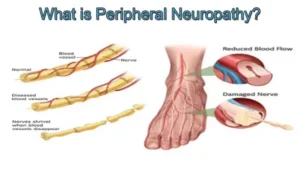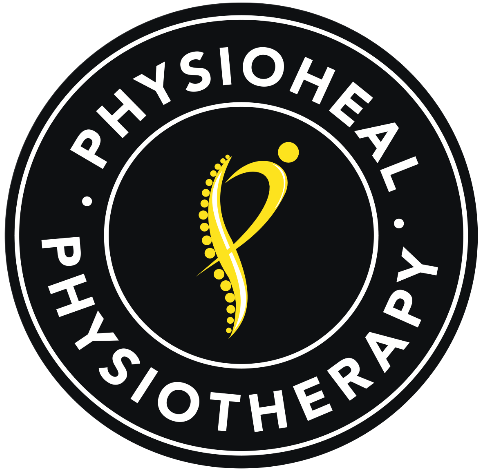We Are Open For Neuropathies Treatment in Gurgaon!
Fill the form and let us call you back.
Unlocking Neuropathies: Your Guide to Understanding, Managing, and Thriving
Neuropathies, a spectrum of disorders arising from peripheral nerve damage, hold the key to a better quality of life. As part of the intricate communication network between the central nervous system (CNS) – the brain and spinal cord – and the body, neuropathies significantly impact daily functions and independence.

Decoding Peripheral Nerves: The Nexus of Sensation and Function
Complex structures called peripheral nerves, comprising nerve fibers (axons) and protective myelin sheaths, transmit sensory data to the CNS, relay motor directives to muscles, and regulate autonomic functions like digestion and heart rate. Neuropathies manifest when these nerves are compromised.
Navigating Neuropathy Classification: Understanding the Impact
Neuropathies are categorized by nerve count and location:
- Mononeuropathy: Damage to a single nerve, seen in carpal tunnel syndrome or peroneal nerve palsy.
- Polyneuropathy: Affects multiple nerves symmetrically, exemplified by diabetic neuropathy.
- Mononeuritis Multiplex: Multiple nerves damaged in random areas, associated with conditions like vasculitis.
- Autonomic Neuropathy: Affects autonomic nerves, causing involuntary function issues like heart rate and digestion.
These classifications branch into mono-neuropathies, multi-focal neuropathies, and poly-neuropathies, with sub-classifications like axonal, demyelinating, and mixed neuropathies, crucial for treatment and management.
Understanding Neuropathy’s Language: From Sensations to Strength
Initial symptoms of neuropathy include tingling and numbness, followed by pain, weakened muscles, and reduced deep tendon reflexes. Neuropathic symptoms may resemble other conditions, underlining the need for accurate diagnosis.
Unraveling Neuropathy’s Roots: A Diverse Landscape
Neuropathies stem from causes ranging from metabolic disruptions to genetic factors:
- Metabolic/Endocrine Causes: Diabetes, along with deficiencies in B1, B6, B12, and vitamin E.
- Inflammatory Diseases: Guillain-Barre Syndrome, Lupus, and other autoimmune conditions.
- Toxins and Drugs: Alcohol, certain antibiotics, and medications affecting cardiovascular health.
- Hereditary Factors: Conditions like Charcot-Marie-Tooth disease.
- Infections: Bacterial (Lyme disease) and viral infections (chickenpox, shingles, etc.).
- Trauma and Pressure: Carpal tunnel syndrome, injuries, and arthritic conditions.
- Tumors: Growths compressing nerves or linked to paraneoplastic syndromes.
Neuropathy’s Symptoms: From Sensory Challenges to Autonomic Changes
Symptoms encompass numbness, tingling, pain, muscle weakness, and autonomic dysfunction. Accurate differentiation from similar conditions is crucial for effective management.
Navigating Diagnosis: A Holistic Approach
Neuropathy diagnosis involves clinical exams and advanced testing methods:
- Physical Examination: Testing reflexes, muscle strength, and sensory functions.
- Blood Tests: Uncovering factors like diabetes contributing to neuropathy.
- Nerve Function Tests: Electromyography and nerve conduction studies.
- Imaging Tests: MRI or CT scans identifying physical nerve distress.
- Nerve Biopsy: Providing insights in select cases.
- Crafting a Path to Wellness: Neuropathy’s Treatment Strategies
Neuropathy treatment focuses on addressing causes, symptom relief, and optimal function restoration
- Medication: Tailored pain relief, anti-seizure drugs, and antidepressants.
- Therapies: Utilizing physiotherapy, TENS, and non-invasive approaches.
- Surgical Procedures: Necessary for nerve pressure-related cases.
- Lifestyle Adjustments: Glucose control, alcohol cessation, and nutritional supplementation.
- The Role of Physiotherapy: Personalized interventions to enhance movement, reduce pain, and boost function.
Embracing Knowledge for Empowerment: The Path to Optimal Neuropathy Management
Empowering individuals through comprehensive understanding and effective treatment is at the heart of neuropathy care. Physioheal Physiotherapy is dedicated to providing tailored solutions that encompass personalized treatment plans, interventions, and modalities like TENS and low-level laser therapy, contributing to effective neuropathy management in Gurgaon and beyond. To book a full assessment with one of the specialist physiotherapists, please call Physioheal on +91-9999259307 today. Alternatively, book an appointment online with us today!
About Physioheal
Physioheal, led by the esteemed Dr. Divya Gaur, stands as the premier destination for top-tier physiotherapy in Gurgaon. Our dedicated team offers personalized care and effective solutions for a wide range of conditions, ensuring lasting relief and improved well-being. As Gurgaon’s leading physiotherapy clinic, we are committed to providing exceptional care under Dr. Divya Gaur’s guidance, making your journey to a pain-free life our primary goal.
